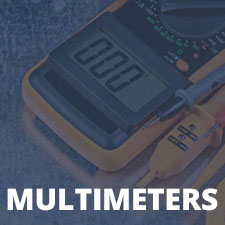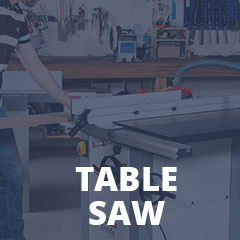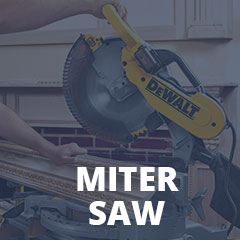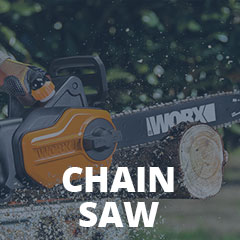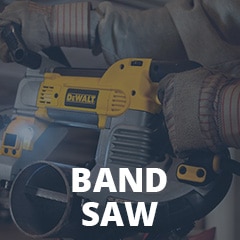If you’re all about electrical DIY projects, then odds are you already own a multimeter or two. If you’re a mechanical enthusiast, or if you’re looking for more professional ways to detect electrical problems in your house or car, then this is the right kind of device for your tool shed. Our Tool Nerds team has noticed a few differences between the types of digital multimeters available. We want to share our findings with you so that you can more easily understand which exact type of multimeter would work best in your situation.
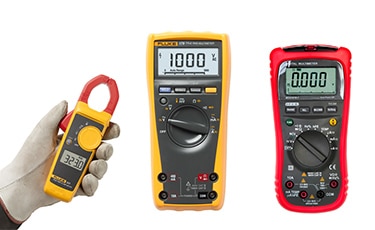
There are a variety of multimeters for a number of different projects and services, and having the right one is the key to a convenient and easy job. While analog multimeters are still available on the market, and can provide a variety of different benefits, this article will be specifically focusing on the types and benefits of different digital multimeters. If you’re interested in both types of multimeters, check out our blog post that details the differences between digital and analog multimeters!
An Overview on the Function of Multimeters
Most digital multimeters can measure:
- Frequency.
- Conductance.
- Continuity.
- Inductance.
- Resistance.
There are, however, some more advanced models that can give you an even wider range of functions and measures. If you need something specific, and you’re working on a technologically-advanced construction, it’s recommended that you look for a multimeter that can measure:
- Decibels.
- Rotations Per Minute.
- Graphs and Graphing Capabilities.
- Microamps.
- Waterproof Capabilities.
Three Types of Digital Multimeters
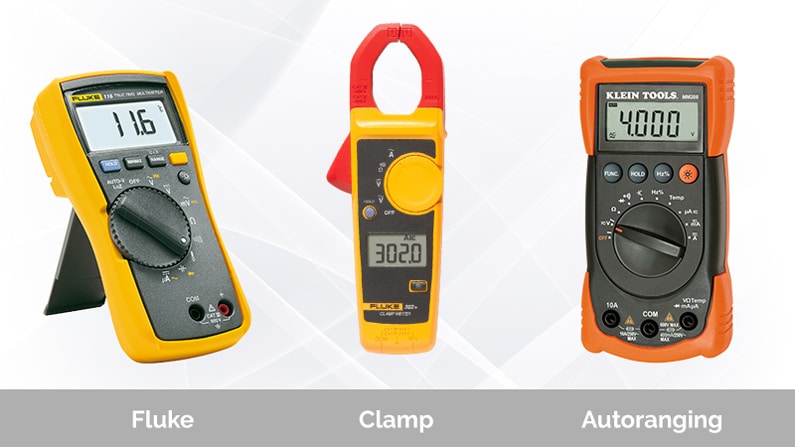
A fluke digital multimeter is used mainly for calibration efforts. It can be used to calibrate volts, currents, and other electrical units.
A clamp digital multimeter uses built-in tools to measure electrical flow. This highly differs from the fluke digital multimeter in that it uses a clamp in order to measure this flow, and is usually only recommended for use by a professional.
An autoranging digital multimeter is used for easier projects. This is the most highly recommended type for use by DIY enthusiasts and at-home electricians. It usually just measures one component at a time. Further details about these three types of multimeters will be broken down to help you understand what you may or may not be looking for in an electrical measuring device.
Fluke Digital Multimeter
Are you looking to calibrate the resistance and voltage usage of the electrical devices in your home or machines? A fluke digital multimeter uses its large display screen to help you measure resistance and voltage simultaneously.
Furthermore, you can use a fluke digital multimeter to access different functions per project. If you own an advanced multimeter, such as a new device from Mastech or Craftsman, it may come with the ability to measure frequency, duty circle, shock, drop, pressure, humidity, and even temperature of your electrical components.
Fluke multimeters are most commonly used with HVAC units and car batteries. This is also the most sought-after type of multimeter not just for electricians, but for anyone looking to measure important components.
Our Tool Nerds team will typically recommend a fluke digital multimeter as a great place to begin, especially if you aren’t sure which type of digital multimeter you need to work with.
Since it provides a wide range of functions and capabilities, it can cover a number of important uses for your projects.
Clamp Digital Multimeter
Unlike a fluke digital multimeter, a clamp digital multimeter is used to measure the basic flows of electricity in your battery, machine, or HVAC equipment. The namesake of this multimeter is the included clamp, which can be attached to the area on your device that you wish to measure.
Ever wonder how a clamp digital meter works? You can read more about the process here! This is a great multimeter for a wide range of uses; professionals and amateurs alike prefer the clamp meter for many reasons. A general breakdown of its functionality is as follows: 1. The clamp is attached to an electric device to accurately measure its amps. 2. The probes of the digital multimeter are attached to an electric device to measure the amount of volts in the device. 3. After both units are properly measured, they can be adjusted or calibrated depending on the settings you choose.
The clamp digital meter can read such measurements as:
- Flow of Electricity
- Voltage
- Power Consumption
- Wattage
- Amps
Remember that you must pick the setting you wish to measure before you use the device; otherwise, it may pick up on the wrong reading.
Autoranging Multimeter
You may have heard of fluke or clamp digital multimeters, but what the heck is an autoranging multimeter? Is that a type of multimeter, or is it a functionality setting? Actually, it’s both! This is a type of multimeter that automatically measures the readings you are trying to gauge. There are far fewer knobs and settings to mess with, leaving you with an almost hands-free device that does all of the hard work behind the scenes.
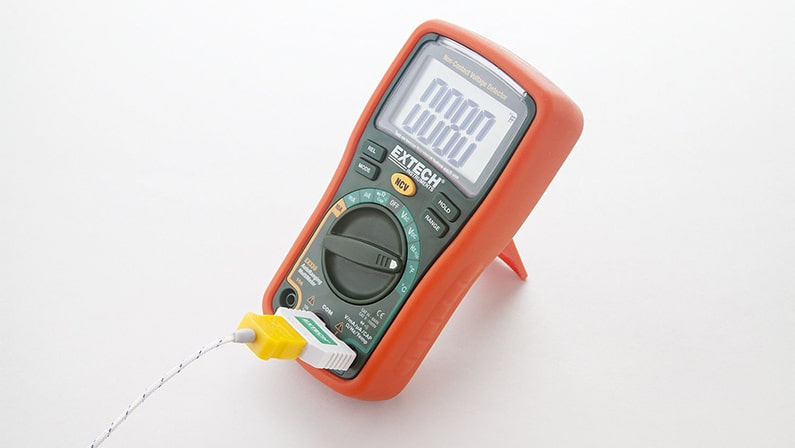
Which Digital Multimeters Test Which Components?
Digital multimeters are separated into the following categories:
- Category I – used for the testing of electronic devices and equipment.
- Category II – this is for testing appliances and domestic loads.
- Category III – for testing industrial circuits, typically of a small to medium-sized range.
- Category IV – this is for heavy-duty testing, such as for electrical power lines, residential feeds, and main electrical components for commercial areas.
Making the Switch from Analog to Digital
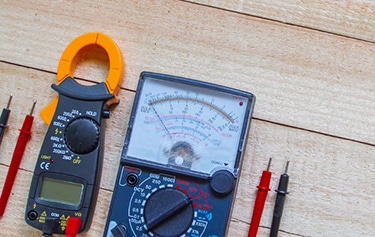
If you’re a long-time analog user, then making the switch to digital multimeters can be an overwhelming exchange. Getting used to the digital display screens, the variety of adjustable knobs, and the pre-programmed settings can make the device hard to handle. Our Tool Nerds experts recommend reading through our multimeter reviews to determine which of these handy tools would work best for you. If you want, you can test one out at your local hardware store. Whether you’re a seasoned electrician or a DIY enthusiast, you’ll find a variety of uses out of a digital multimeter.
Autoranging multimeters are a great place to start for a variety of small electrical functions, while clamp meters and fluke digital multimeters can help you to measures some of the more larger and complex components of your project. All multimeters are tested for safety and accuracy with each and every application.


